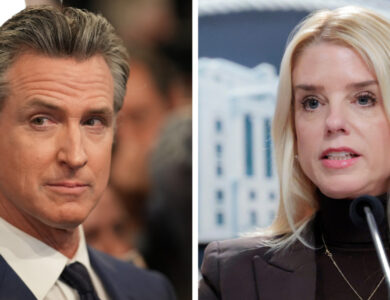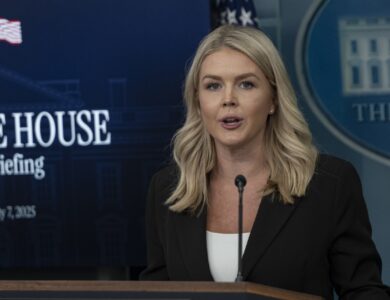Another Federal Judge Blocks Trump’s Birthright Citizenship Order

Another federal judge has blocked President Trump’s order to end birthright citizenship for the children of illegal immigrants, marking the third one to do so since a major Supreme Court decision in June.
U.S. District Judge Leo Sorokin, an Obama appointee, sided with more than a dozen states and said their nationwide injunction remains valid despite the recent limits the Supreme Court placed on nationwide rulings, The Associated Press reported.
The states say the order is unconstitutional and threatens their budgets by stripping children of the citizenship benefits tied to health and social services.
Sorokin agreed, rejecting the administration’s attempt to narrow the ruling and saying a patchwork of enforcement wouldn’t work because people move between states.
He also criticized the government’s legal argument, saying they had failed to explain how their proposal would be workable or legal.
“That is, they have never addressed what renders a proposal feasible or workable, how the defendant agencies might implement it without imposing material administrative or financial burdens on the plaintiffs, or how it squares with other relevant federal statutes,” Sorokin wrote.
“In fact, they have characterized such questions as irrelevant to the task the Court is now undertaking. The defendants’ position in this regard defies both law and logic,” he added.
New Jersey Attorney General Matthew Platkin, who helped lead the challenge, praised the decision.
“I’m thrilled the district court again barred President Trump’s flagrantly unconstitutional birthright citizenship order from taking effect anywhere,” he said.
“American-born babies are American, just as they have been at every other time in our Nation’s history. The President cannot change that legal rule with the stroke of a pen,” he said.
White House spokeswoman Abigail Jackson responded in a statement, saying the administration looks forward to “being vindicated on appeal.”
The administration has not yet filed any appeals against the three rulings now blocking the executive order.
A federal judge in New Hampshire also issued a nationwide block earlier this month in a class-action suit and put the order on pause, but with no appeal filed, his ruling is now active. Another appeals court in San Francisco ruled this week that the order is unconstitutional and upheld a lower court’s nationwide block.
A judge in Maryland has said she would also issue a nationwide injunction if an appeals court gives her the green light.
While the Supreme Court recently limited the ability of lower courts to issue nationwide injunctions, it did leave room for exceptions — including class actions and lawsuits brought by states.
The court has not ruled on whether Trump’s birthright citizenship order is constitutional, but Sorokin made clear in his opinion that he believes it’s not.
“Trump and his administration are entitled to pursue their interpretation of the Fourteenth Amendment, and no doubt the Supreme Court will ultimately settle the question,” he wrote.
“But in the meantime, for purposes of this lawsuit at this juncture, the Executive Order is unconstitutional.”
The Trump administration argues that the 14th Amendment only covers children born to people who are “subject to the jurisdiction” of the United States — which they say excludes illegal aliens and temporary visitors.
Critics say the Constitution is clear, and that the amendment guarantees citizenship to anyone born on American soil.
Plaintiffs in the Boston case argue the president doesn’t have the authority to override that principle with an executive order, calling it a “flagrantly unlawful attempt to strip hundreds of thousands of American-born children of their citizenship based on their parentage.”
They also warn it could cost states millions in funding used to support essential services like foster care, low-income child health care, and programs for disabled students.
The Fourteenth Amendment was passed in 1868 following the Civil War to overturn the Dred Scott ruling, which had denied citizenship to a man born into slavery.





